Climate Change & Jesuit Higher Education: Reportback from Loyola Chicago #5
BY JAMES HUG S.J | March 28, 2015
James Hug, S.J. attended Loyola University’s Chicago’s Climate Change Conference and offered a series of reflections before, during and after the gathering which can be found here.
 The final panelist of the morning was John Sealey, the Provincial Assistant for Social Justice and International Ministries for the Midwest Jesuits. He reported on the U.S. and Canadian Jesuit involvement in actively pursuing shareholder responsibility since 1974 through a working group that has become known as the Jesuit Committee on Investment Responsibility (JCIR). While JCIR-led advocacy can point to successes in areas of human rights and water sustainability, as yet there has been little measurable success in addressing fossil fuel companies on their roles in the climate change crisis.
The final panelist of the morning was John Sealey, the Provincial Assistant for Social Justice and International Ministries for the Midwest Jesuits. He reported on the U.S. and Canadian Jesuit involvement in actively pursuing shareholder responsibility since 1974 through a working group that has become known as the Jesuit Committee on Investment Responsibility (JCIR). While JCIR-led advocacy can point to successes in areas of human rights and water sustainability, as yet there has been little measurable success in addressing fossil fuel companies on their roles in the climate change crisis.
Currently a reflection paper is being drafted under JCIR auspices to encourage Jesuit-sponsored institutions and provinces to acknowledge the significant role fossil fuels play in climate change and discern their appropriate mission-guided ethical responses in the Ignatian tradition.
The reflection paper will encourage all institutions to acknowledge the destructive impact of fossil fuel emissions and to make some important decisions about their posture toward them. Sealey quoted Archbishop Desmond Tutu as saying in September 2014, “The destruction of the earth’s environment is the human rights challenge of our time.”
Sealey suggested three different strategies that Jesuit and other investors might conceivably choose. The three policies, stated simply, are:
- A more robust commitment to shareholder engagement by some of those already engaged,
- Divestment from fossil fuels and reinvestment in alternative clean energy sources for others, and/or
- Investment in alternative clean energy sources by many.
For those tending to favor the shareholder engagement strategy, he suggested important questions for their discernment process.
- Is the institution willing to commit to the long and incremental work of shareholder engagement to help move companies toward cleaner alternatives? Does the institution have the capacity to undertake effective shareholder advocacy?
- What is truly possible? What is not being addressed by others? What kindles our strongest passions? What is likely to succeed? What will benefit the most people? Can the institution go beyond proxy voting to join or lead dialogues, press for change at annual meetings, file shareholder resolutions, commit thought leaders to join with others in the faith and social investment community?
- Do the actions taken by fossil fuel companies amount to more than window dressing when compared with the investment outlays toward lobbying and exploration of new reserves?
For those tending to favor fossil fuel divestment and reinvestment in alternative clean energy sources, he asked:
- Does divestment sever a relationship that might have the potential to change hearts? There is generally an Ignatian preference for maintaining relationships and dialogue over confrontation. Besides shareholder engagement, what other stakeholder relationships might be nurtured and built upon to further dialogue and social reconciliation?
- Does divestment run the risk of blunt oversimplification that might be dismissed as unrealistic?
- Can the divesting institution publicly express its position in a way that is neither simplistic nor strident? As a form of advocacy, can it be both critical and constructive?
Different institutions, Sealey noted, may in good conscience, through careful discernment, select different strategies for responding. But he urged that all of them remember “that contact with innocent suffering can be a potent catalyst for solidarity and personal conversion (Kolvenbach, Santa Clara, 1991). Let’s bring the experiences of innocent suffering through climate change to our discernment too – those current and future victims of drought, sea level rise, famine, environmental refugees, typhoons, and extreme weather events….”
As long as all engaged remain in solidarity with “the least of these” climate victims, the choices of shareholder engagement, divestment, and/or alternative investment in renewable energy are not in conflict and must not be allowed to be turned against each other. They are simply strategic or tactical differences in service of one crucial goal. “Our witness will be stronger,” Sealey concluded, “working together than allowing ourselves to be divided on a tactical point.”
Indeed, in my judgment, these three strategies could be coordinated as a stronger, more complex joint strategy, by Jesuit-sponsored institutions and provinces in the U.S. and Canada – and possibly in collaboration with other Catholic institutions and religious communities. Divestment commitments, student, faculty and alumni/ae movements, and increasing alternative investments all represent strong and important messages that those engaging in shareholder dialogues can bring to boardroom tables.
In my next report on this conference, I will describe the issues of ethics, policy and motivation raised in three afternoon panels and describe the concrete action steps that emerged on the final day of the gathering.
You can find all of Fr. Hug’s reflections on the conference here.
James E. Hug, S.J., has a long history working in social ethics and social justice advocacy in the Catholic community. He served 24 years as the President of the Center of Concern, a Washington, DC based social justice institute rooted in Catholic social tradition, working for greater economic, social, and ecological justice globally. He holds a doctoral degree in Christian ethics from the University of Chicago and a master’s degree in Christian spirituality from St. Louis University.
Fr. Hug’s research has focused on issues of faith and economic justice and he has lectured and directed workshops throughout the U.S. and in Europe, Asia, Africa, and Australia. Currently he serves as sacramental minister for the Adrian Dominican Sisters and writes on issues of spirituality for social transformation in these difficult times. His blog, “Truth that does Justice,” can be found on the website for the Dominican Center: Spirituality for Mission, www.dominicancenter.org.
Past publications have included Catholic Social Teaching: Our Best Kept Secret, Social Revelation: Profound Challenge for Christian Spirituality, and Tracing the Spirit: Communities, Social Action, and Theological Reflection. Jim has also written chapters for Globalization and Catholic Social Thought: Present Crisis, Future Hope and The Pastoral Circle Revisited: A Critical Quest for Truth and Transformation.
Fr. Hug’s research has focused on issues of faith and economic justice and her has lectured and directed workshops throughout the U.S. and in Europe, Asia, Africa and Australia. He was the editor of the Center of Concern’s “Catholic Social Teaching: Our Best Kept Secret, author of Social Revelation: Profound Challenge for Christian Spirituality,” and the editor of “Tracing the Spirit: Communities, Social Action, and Theological Reflection.” Jim has also written chapters for “Globalization and Catholic Social Thought: Present Crisis, Future Hope” and “The Pastoral Circle Revisited: A Critical Quest for Truth and Transformation.”

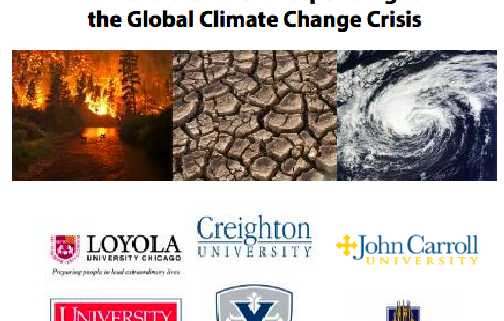

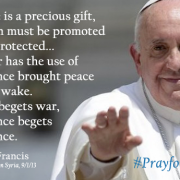
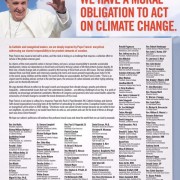
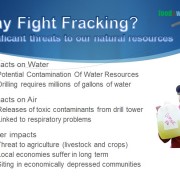
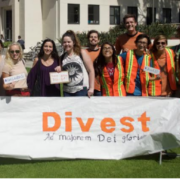
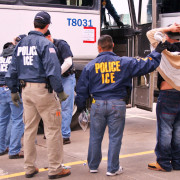



Leave a Reply
Want to join the discussion?Feel free to contribute!